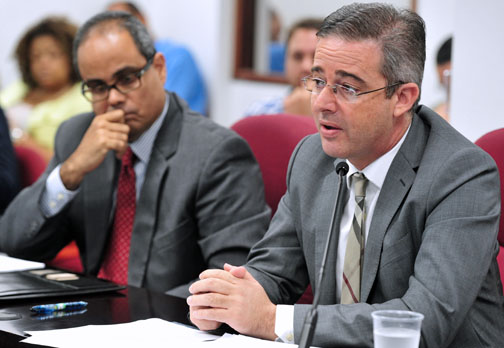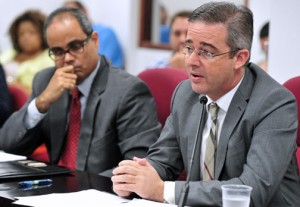Puerto Rico could reap $500M from recycling cans, bottles

Puerto Rico Solid Waste Authority officials said Wednesday that the island is losing out on some $500 million annually on processing recyclable containers — particularly aluminum cans and glass bottles — that end up in landfills.
SWA Executive Director Agustín Carbó-Lugo, who testified before the Senate’s Natural and Environmental Resources Commission, favored a measure that proposes introducing a system establishing a refundable deposit to motivate consumers to return cans and glass bottles for recycling.
The hearing focused on Senate Bill 189 that would create the Drink Containers Recycling Law, proposing charging consumers a deposit of no less than 5 cents on the price of any recyclable drink container at the register. The amount of the deposit could vary depending on the type and size of the container, which would also be included in the wholesale amount charged to retailers.
Consumers would get their deposit back when they return the marked cans to the retailer or recycling collection center. This type of system has been used for decades in many U.S. jurisdictions, which have successfully kept the recycling practice going.
Puerto Rico generates more than 10,000 tons of solid waste every day, about 30 percent of which has some sort of economic value, said Estrella Santiago-Pérez, head of the Sierra Club de Puerto Rico’s Community Advocacy Program.
For example, plastics make up more than 8 percent of the recyclable material that is disposed in landfills and, in 2007, the market value for this type of material was 20 cents per pound, she said.
“In 2007 alone, when 385 million tons of plastic was discarded, we buried in our landfills more than $150 million in plastic, and discarded $467 million in recyclable materials,” Santiago-Pérez said.
Meanwhile, the stateside recycling industry has created 1.1 million jobs, generated more than $236 billion in gross annual sales and $37 billion in annual salaries. In Massachusetts alone, payroll totals associated with recycling industries is estimated at $500 million, she said.
One of the stumbling blocks for creating a functioning recycling industry on the island is a lack of education, which Carbó-Lugo said could be achieved if lawmakers assign funds to enable the SWA — the agency in charge of authorizing and regulating redemption centers — to launch orientation efforts.
The fund would feed from the refundable deposits collected, and Carbó-Lugo said regardless of which agency manages it, the fund must fall under the Treasury Department, not the General Fund.
Another point he brought up is the fact that the island lacks a glass recycling facility, nor is glass exported or sold to other jurisdictions.
“It is therefore important to take the opportunity to simultaneously promote legislation requiring the use of glass as an aggregate in concrete used for the construction of public works,” he said.







A reimbursable tax on cans and bottles is a good idea, but focus first on waste disposal. Recycling will face opposition from bottlers. Also, add plastic bags as a taxable and reimbursable item. To simplify administration, the tax should be collected at the port of entry, not by the retailer. Also, reimbursements should happen at collection centers, not retail outlets.
Good idea.
There are automated vending systems made by TOMRA where people can return these cans and bottles and receive payment for items returned.
This would create jobs.
If too expensive the cheapest approach should be to enforce recycling into law and provide recycling garbage cans with everything recyclable to go in them and allow private companies to collect and sort this recyclables. Some correction facilities might benefit from becoming recycle sorting centers. Give inmates something to do and get paid even if it is at lower than minimum wage.
If they can find people to work and the government does not steal all the money (like all the other funding) it may bring a benefit.
If I’m being honest it is crazy that Puerto Rico could essentially get 500 Million dólares just from reciclying which is why I still don’t know why anyone isn’t doing something about it and it is just a matter of time before this starts a huge problem